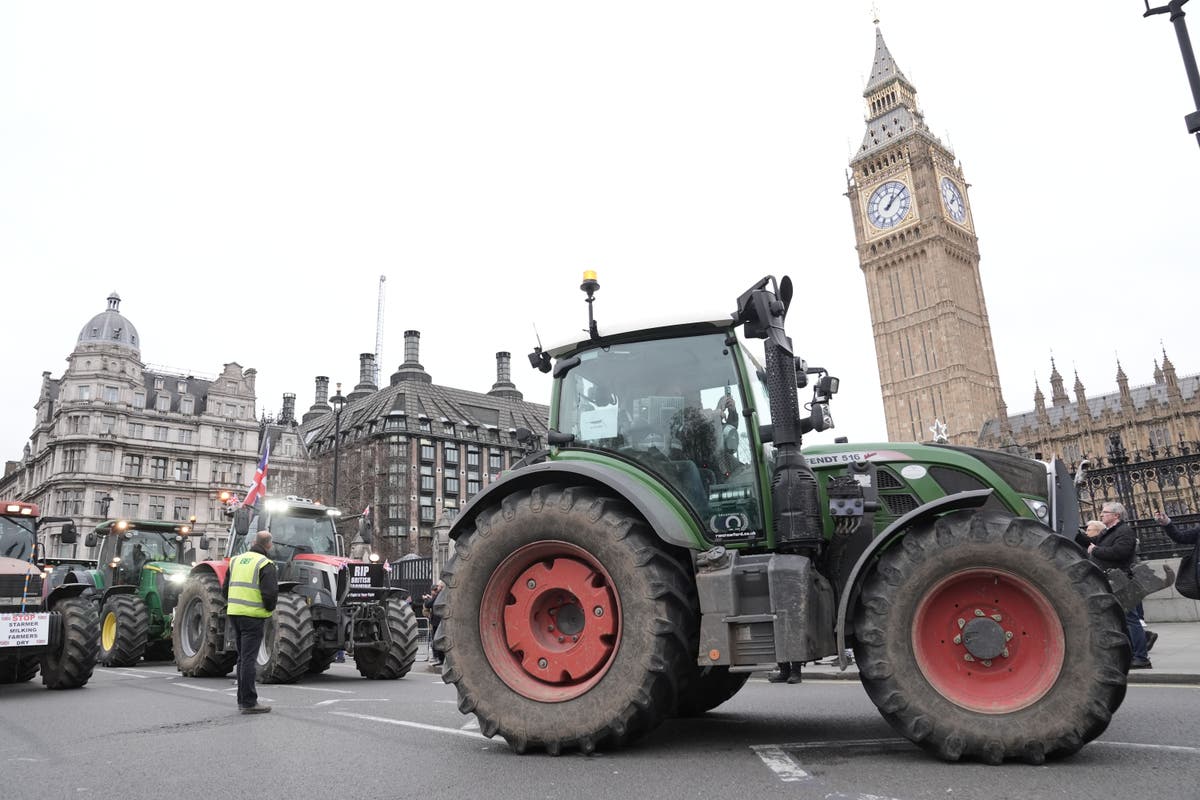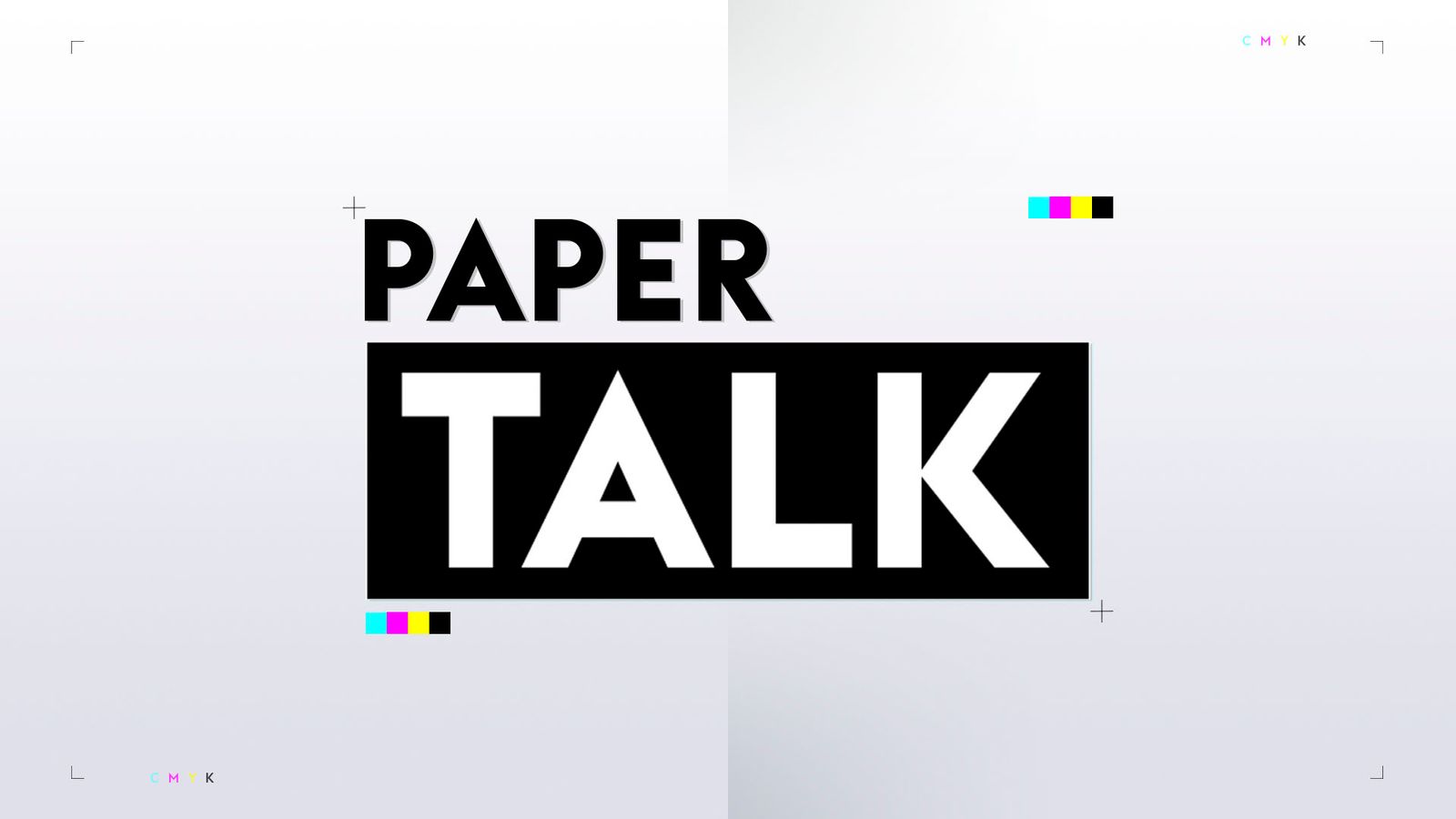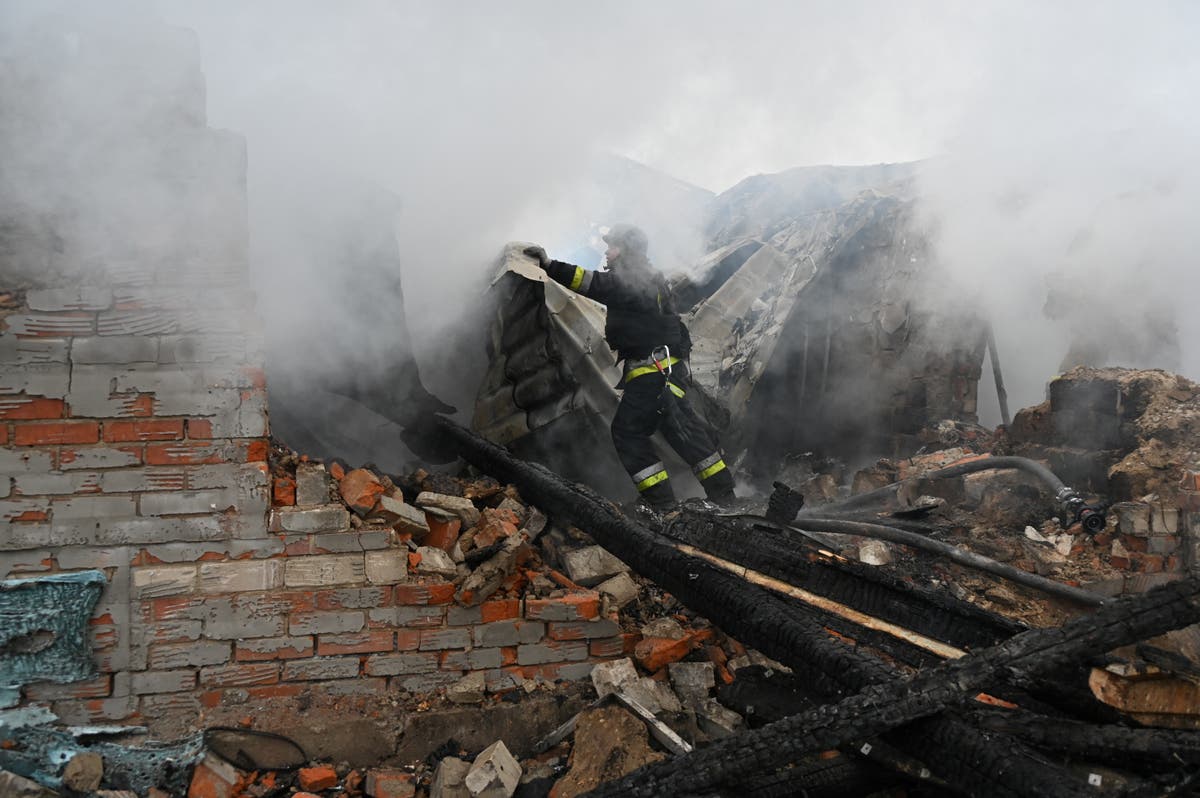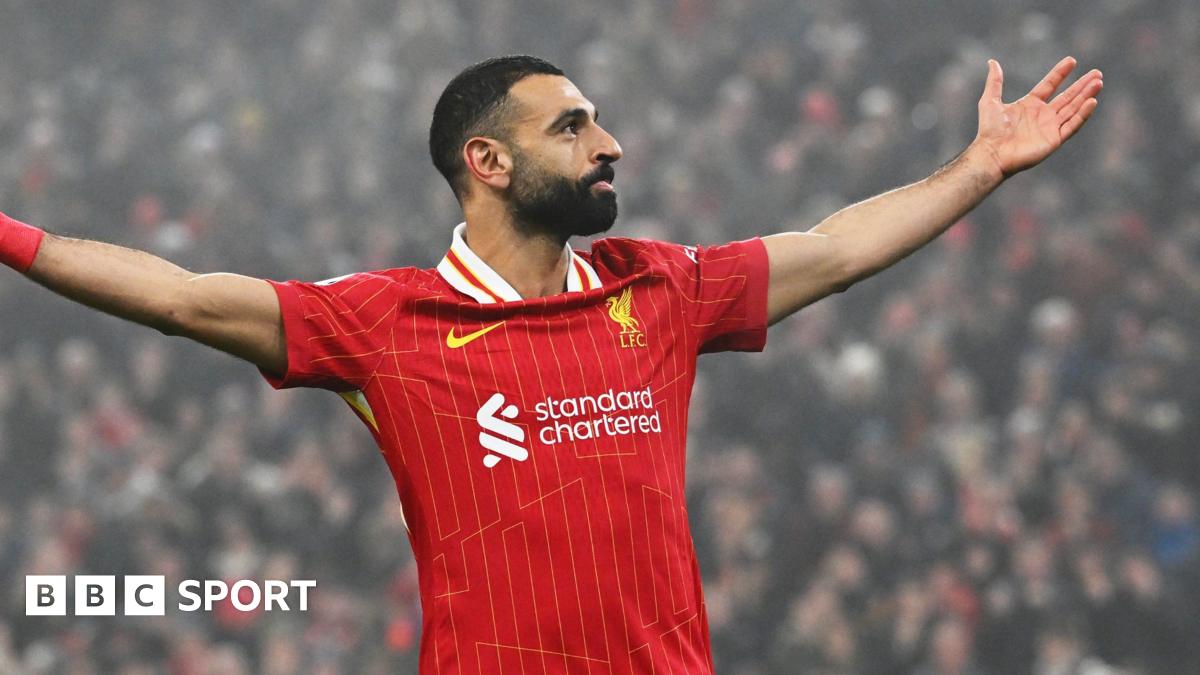World
Return of Donald Trump puts UK defence spending at top of agenda – Laura Kuenssberg
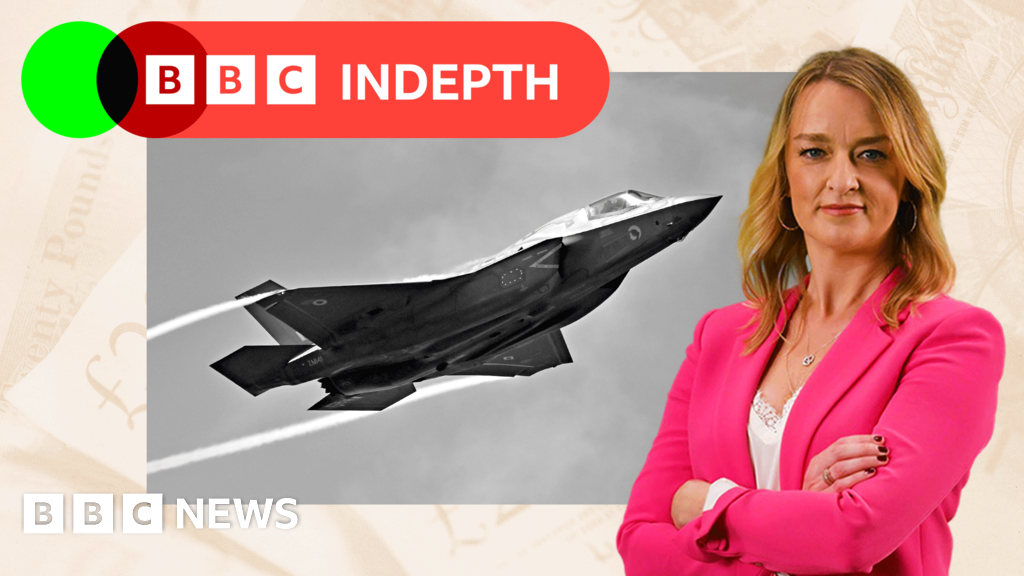
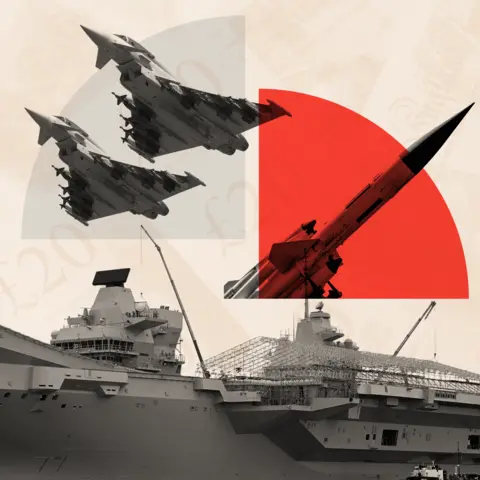 BBC
BBCYou’re probably used to politicians telling you we’re living in the most dangerous times for decades.
But who’s going to pay for our protection?
Donald Trump is a lot less willing than the current president to pay for other countries’ defence.
As one UK source told me, “it doesn’t make sense for Europe’s defence interests to be dependent on a few thousand votes in Pennsylvania.”
So Trump’s return puts this question right to the top of the list.
The UK government does plan, eventually, to hit the target the Conservatives committed to – of spending 2.5% of the size of the economy on defence, a level last hit back in 2010.
But there’s a defence review underway, and a spending review of every penny spent in Whitehall to get through first.
They’re expected to come one after the other, next spring.
John Healey, the defence secretary, was granted an extra £3bn in the Budget, which is a chunky sum of money – but in terms of defence spending, not a transformative amount of cash.
And it’s only a top-up for a year, with no certainty over long-term funding.
A former minister said: “It’s very hard to order for the years ahead – how long can we be talking, when the need is now?”
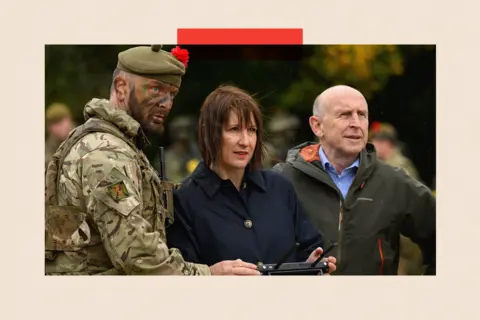 Getty Images
Getty ImagesThe government will not say when they expect to hit the 2.5% target – and won’t commit to hitting it before the end of the Parliament in 2029 – causing frustration in some quarters.
A senior source said “you either believe it is the most dangerous time in decades and you fund it properly, or you just don’t really believe it, so you don’t.”
And earlier on the Today programme, former Defence Secretary Ben Wallace accused Labour of making an effective “cut in our defence budget” by including £3bn of Ukraine funding in it.
If Labour reach the 2.5% target, he said he’d welcome it, “but it’s got to be real money with a timetable”.
There is little disagreement that more resources are needed.
John Healey himself has acknowledged the military “are not ready to fight”. A squeeze on funding over many years had made money tight – the forces “hollowed out”, according to Wallace.
The UK’s support for Ukraine, which has almost universal political support at home, has added to pressure.
According to the National Audit Office, the UK has committed nearly £8 billion to Ukraine – air defence missiles, drones, cruise missiles, tanks and ships, as well as clothing and personal equipment.
Another former minister told me that funding “is absolutely urgent – it is urgent to help Ukraine but the most urgent is where our forces are in danger – it’s not hypothetical, in the Red Sea the Houthis are firing at our ships.”
And shortly before the election, the government’s new national security adviser Jonathan Powell wrote that a new administration would need to reinforce the UK’s defence and security “within the bounds allowed by a struggling economy”.
Some insiders argue rising threats around the world mean the UK should spend way more than 2.5% in any case.
Another former minister told me, “by any measure we are underspending – if you don’t buy the insurance policy you end up having to pay yourself and the cost of real conflicts would be immense in comparison”.
A defence source told me, “we are going to have to make a move on spending or we can put our fingers in our ears and hope we get through it – the Treasury has to do the maths on this – the way to stop spending 5 percent of GDP in the future is to spend now.”
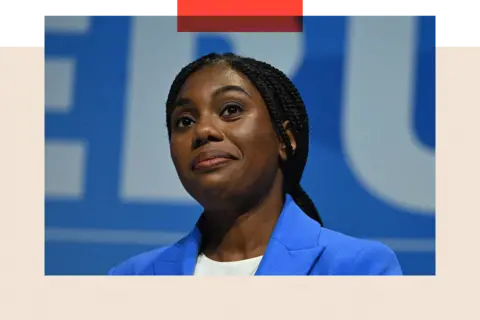 Getty Images
Getty ImagesHow it’s spent
But it’s not just about how much money goes to defence – it’s also about how it’s spent.
Recent history is littered with examples of Ministry of Defence projects that overrun and overspend, some in eye-watering proportions.
One insider told me, “the worst thing we could do is spend more and spend it badly … the number needs to go up but we absolutely need to get a proper grip of procurement.”
Several sources mentioned with some pride, and indeed surprise, the way the MoD had worked effectively and quickly with Ukraine to get the right kit into their hands quickly.
One said the MoD had “proved it can spend cash well but it needs to show it can do it consistently”.
Another said the British military had to shed its culture where “only the most exquisitely perfect products may be bought”.
The MoD reckons it can crack down on waste and improve the way things are bought and paid for with new more centralised methods – even hiring a new national armaments director to manage this.
As methods of warfare evolve on the battlefield, so too do the ways militaries respond with kit.
A former minister said: “forget your big new fantasy regiment – we can make what we have more lethal” instead.
The government says it wants to shake up and sort out the mess that defence procurement has become. But there is no doubt that is easier said than done.
Power era
While as a political party, Labour is instinctively uncomfortable with Donald Trump’s re-election, when it comes to defence there is some sympathy with his attitude towards European defence funding.
One insider said, “put on your incontinence pants, don’t listen to the rest of his politics, it’s none of our business.”
Another source told me, “Trump set challenge to Europe last time and he was in part right to,” pointing out that after his term in office the number of NATO countries who did hit the target of spending at least 2% of their GDP on defence did go up.
Twenty-three now meet the 2% target, up from just six countries in 2021.
Rather than worrying about what Trump might do in office, they said, “a precondition for Trump to take European defence seriously is for Europe to take its own defence seriously.”
It’s hard to see how that does not mean more countries on the continent spending more of their own cash.
“Let’s not kid ourselves, NATO does deter Russia, and we have to make sure that happens,” said a defence source.
America’s role in our security is vital. But sources in government acknowledge that Europe, with conflict on its fringes, must play a vigorous financial part.
Eager to be seen as the leader in Nato, the UK is taking steps to boost defence cooperation across the continent – leaders recently signed a “landmark defence agreement” with Germany.
Donald Trump’s return to the White House sets nerves jangling across the Atlantic about what it will mean for Nato, what it will mean for the US committment to support for Ukraine in terms of diplomacy and cold hard cash.
There is instinctive political unease here with his behaviour, his attitude to the law, convention, and the truth. But perhaps in the words of one source “it’s not a rule of law era, it’s a power era”.
Before the Trump victory, there were already profound questions for our politicians about how they protect our interests.
The imperative to answer them is stronger now the unpredictable president is on his way back.
Perhaps the UK and the rest of Europe may need to display and pay for more of its own power to have a chance of getting the Trump White House on board.


BBC InDepth is the new home on the website and app for the best analysis and expertise from our top journalists. Under a distinctive new brand, we’ll bring you fresh perspectives that challenge assumptions, and deep reporting on the biggest issues to help you make sense of a complex world. And we’ll be showcasing thought-provoking content from across BBC Sounds and iPlayer too. We’re starting small but thinking big, and we want to know what you think – you can send us your feedback by clicking on the button below.






